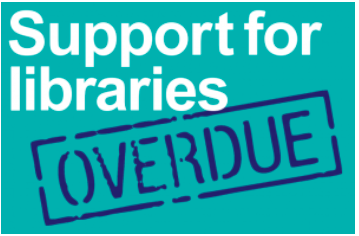Amy Short, library director for Cambridge Public Schools, began the session with an overview of the priority recommendations from the study. These featured:
- Develop a DESE-approved SISP rubric for a universal job description for school librarians to be used for performance evaluation
- Develop guidelines that distinguish between educational and administrative technology and define the role and responsibilities of the school librarian in educational, not administrative technology
- Provide professional development and training in administrator preparation programs to raise administrators’ awareness of the school librarian’s role
- Reach out to the Massachusetts Board of Library Commissioners and Massachusetts Library System to increase awareness at DESE of the professional development available for school librarians and improve awareness of and access to training through MLS and educational consortia
- Highest Impact Recommendation: Create the position of School Library Curriculum Specialist at DESE to facilitate the recommendations, and address the lack of access and equity to school libraries across the Commonwealth
The focus group participants then discussed the featured recommendations and provided feedback and additional questions to develop context and develop potential new lines of advocacy. Many of the ideas that emerged focused on DESE and high priority goals. The approval of a school librarian teacher rubric should include professional development for administrators to develop a clear understanding of what a school librarian actually does before they apply the rubric. This led to a discussion about how non-licensed people working in school libraries are evaluated if they are evaluated at all, the implications and value of establishing an alliance with school bargaining units.
Other areas of discussion were:
- DESE formally adopting the School Librarians' Resource Document to Support Implementation of Teacher Rubric and providing professional development to school administrators to 1) develop understanding and familiarity with the rubric and 2) to clarify exactly what librarians teach
- Further developing the school librarian rubric to create evidence to associate with what school librarians say they teach to provide to administrators with exemplars
- Promote school librarians participation the DESE Teacher and Principal’s Advisory Cabinets to provide direct feedback to DESE on new policies and resources at the state level. There are 3-4 meetings per year, a weekly newsletter from DESE with updates, and participants can work digitally/remotely
- In promoting a school library specialist position at DESE it should be mentioned that an added benefit is for candidates for licensure pursuing an alternative path. Currently, there isn’t someone at DESE who can review and assess portfolios. This is an important function and could increase the pool of incoming librarians
The participants in the focus group then engaged in a gallery walk protocol facilitated by Amy in which they formed groups and provided feedback on five prompts:
- What ideas do you have for branding, logos, social media, messaging?
- What ideas do you have for this committee and this work moving forward? What is missing?
- What initiatives/goals will have the most impact and in what area?
- What resources/information should be included in the Salem State LibGuide?
- What ideas do you have for working with new or current partners?
The feedback was rich, the conversations were passionate and energetic, and the wealth of ideas was truly inspiring. You can find Amy Short’s synthesis of the gallery walk here. We have a lot of work ahead of us!
- Contacted my legislators and city/town decision makers with information provided by MSLA,
- Reached out to school administrators/decision makers with information about equity issues in my community's school library program,
- Attend a brainstorming session to identify strategic plans for implementing the Commission's Recommendations,
- Reach out to parents and other adults in my community with information about equity issues in my community's school library program.
- Help develop a PR kit that school librarians can use to inform members of their community about the Commission's findings and recommendations,
- Serve as a liaison to influential allies (e.g., MTA, ATF, MLS, MLA, etc),
- Conduct additional research that builds from this report.
- Public service announcements to raise broad community awareness.
We have created a master list of all MSLA members, MLA members, and stakeholders who have expressed an interest in supporting this advocacy work, or are just interested in staying informed. If you have not already done so, please volunteer using this Advocacy volunteer form. MSLA Executive Director Kathy Lowe has created a Yahoo group to facilitate communication and conduct ongoing threaded discussions. Please check your email for the invitation. If you are signing up now we will add you to the group.
An enormous opportunity exists to improve the equitable access to school libraries and the unique instruction and resources available by licensed professionals. Activating community stakeholders and empowering advocacy with data-based strategies is possible in a new way, and together we can create change. Please join us in improving outcomes for all students across the Commonwealth of Massachusetts.


